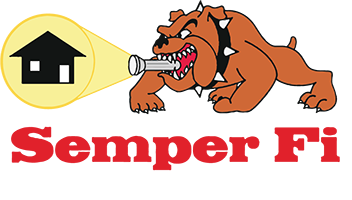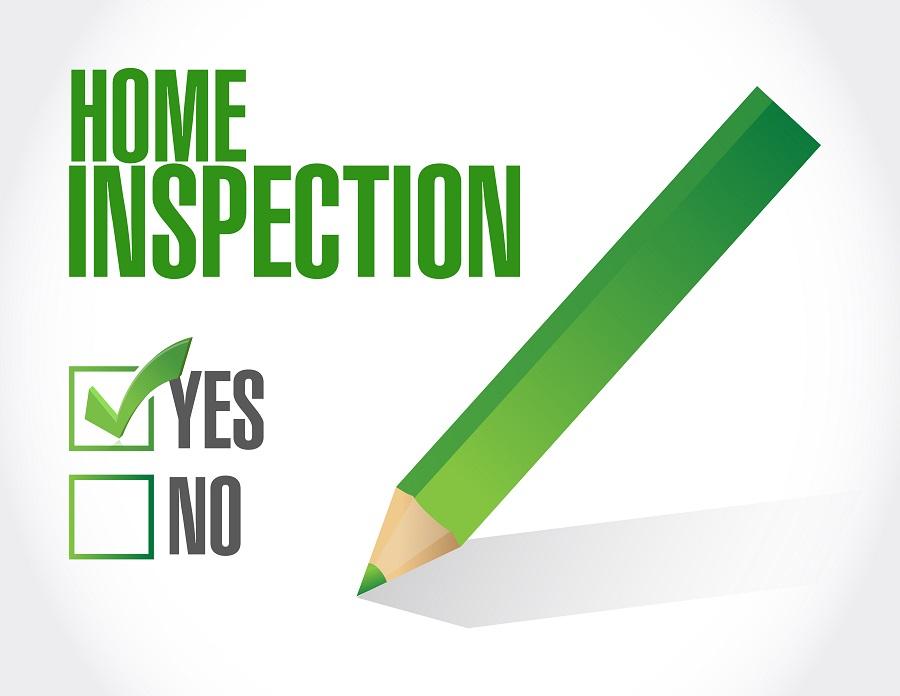One of the most common myths about home inspections is that a the report will show the house will “pass” or “fail” a home inspection. The truth is, as a home inspector we do not give a passing or a failing grade on a home. What we provide is an unbiased and thorough home inspection report detailing any issues found during the inspection – which you may or may not want or need to repair either now or in the future.
As homes – and their systems – age, it’s normal for their to be maintenance and repairs that need to take place, so with every home inspection you can expect to see findings included in the report. These could be something as simple, for example, as an HVAC filter needing replaced, to something much more complex and costly, such as a roof needing extensive repairs. Your home inspection report is designed to provide you with the information you need to understand the state of the systems in your prospective home, and what repair expenses you may need to budget for in the near future.
Cosmetic flaws and minor repairs are always expected, and these small issues will rarely cause a homebuyer to request repairs or back out of a deal during the option period. However, larger and potentially hidden issues can result in negotiations for repairs or price reduction, or at times cancelling the purchase contract.
Here are the most common issues in a house that often require expensive repairs, and that may cause a prospective homebuyer to decide that the home has “failed” … at least failed to meet their needs since the home can’t technically fail a home inspection:
Structural Issues
The older the home, the more likely it is to suffer from structural damage such as sagging rafters or floor joists. These repairs can be costly, and are often only fully diagnosed by an engineer after they have been reported on a home inspection report.
Foundation Issues
Another costly issue to fix is foundation problems, which can be seen in windows or doors that stick, cracks in walls above doorways, horizontal cracks visible in the exterior foundation, and sloping floors. However, simply seeing a crack in the drywall isn’t necessarily a major concern, since all homes settle a bit over time. Minor foundation issues may require small adjustments currently.
Roof Issues
Most roofs last around 15 to 20 years, with potential minor maintenance and repairs during that time, and possibly full replacement of the shingles at the end of that timeframe. While some damaged or loose shingles can easily be replaced, a severely neglected roof could result in more costly replacement.
Exterior Drainage Issues
Improper grading around a home can cause potential drainage issues, such as leaking into basements (if you have one), mushy soil that causes foundation to shift, mildew and mold, or other issues. The general rule of thumb is that for every foot you go away from the house, the ground should slope down 1″. These issues can often easily be addressed by repairing downspouts and gutters and making sure that the slope is appropriate or adding French drains before the issues grow.
Plumbing Issues
Checking for water leaks (or evidence of past water leaks) is one of the items covered in a home inspection. Issues with hot water heaters, sewage systems, and pipes can end up being costly if they are not addressed. The good news is that simply seeing evidence of a past water leak – such as a stain on a ceiling – doesn’t necessarily mean that the leak hasn’t been repaired. That’s the type of information that will be contained in the home inspection report.
Electrical Issues
There are some electrical issues that home inspectors see fairly frequently, such as missing junction boxes or damaged receptacles. Your home inspection report will note these items, as well as mention the type of wiring that your home contains. For example, older houses (pre-1940s) may have “knob and tube” wiring, which you may want to consider replacing since it’s a potential safety hazard.
Home Inspection – Passing or Failing Grade?
We’re your home inspector, not a teacher, and we don’t give a “grade” to the home you’re considering buying. We provide you a detailed and thorough report of the systems in your home. It’s unbiased information that offers you an understanding of both minor and potentially major issues that may be repaired or replaced either now or in the near future. You can discuss the needed repairs with your real estate agent and determine if you want to negotiate any repairs as part of the contract.
For commercial property inspections in the Dallas/Fort Worth area, including a thorough and informative home inspection report, learn more at
or request a quote for a commercial inspection at
682-351-2267



